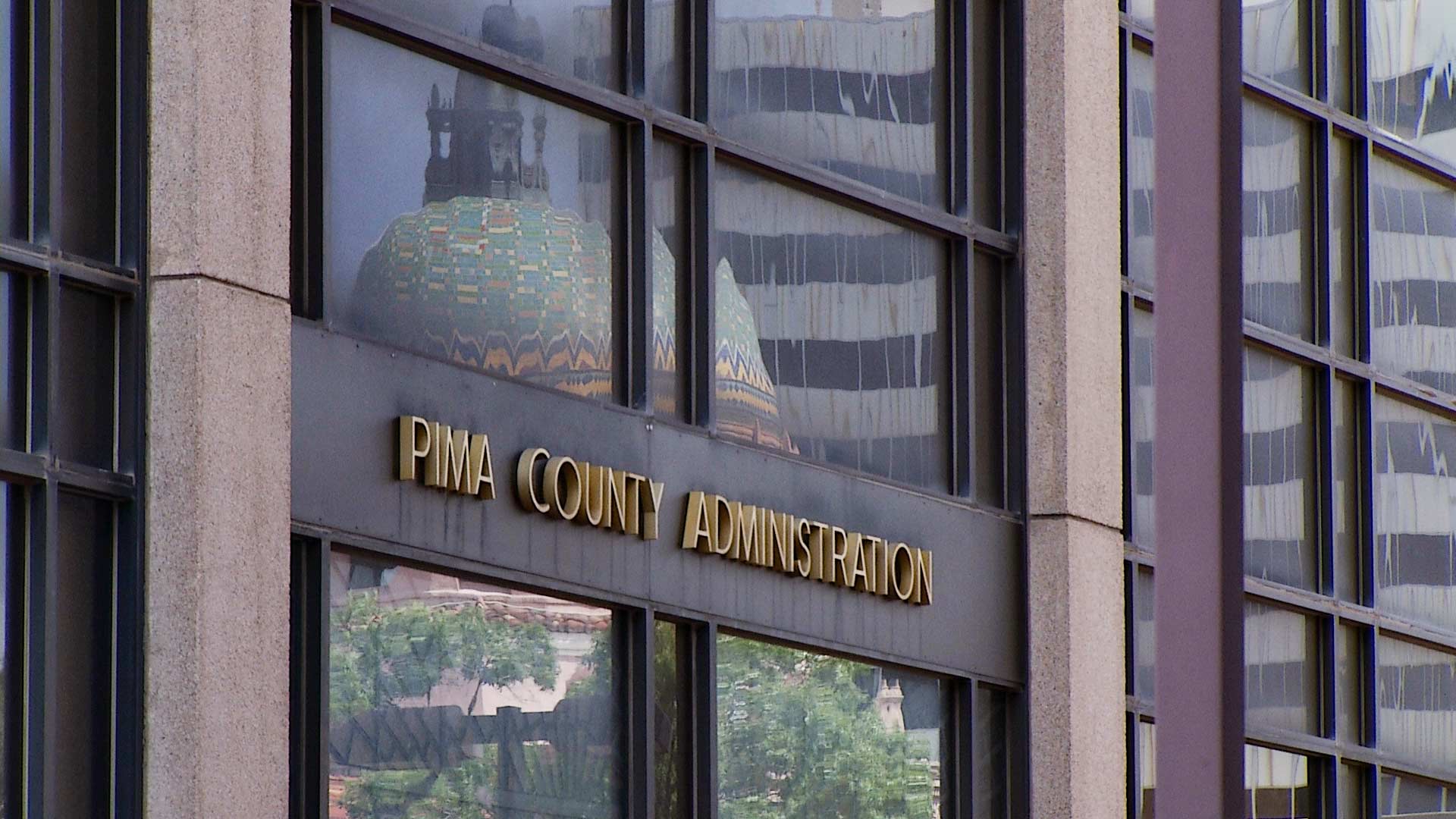 The Pima County Board of Supervisors meets at the County Administration Building in downtown Tucson.
The Pima County Board of Supervisors meets at the County Administration Building in downtown Tucson.
The Pima County Supervisors have once again postponed a board member’s proposal to raise property taxes for affordable housing, citing a lack of a clear plan for how the additional funds would be used.
Supervisor Matt Heinz proposed the “Three Cents for Affordable Housing” plan in April, which would increase the property tax rate by three cents every year for 10 years. Heinz made a last-minute amendment to the proposal before the May 20 meeting to increase the rate by only 1.5 cents in the first year and decrease it by 1.5 cents in the final year.
His district estimates the plan would raise more than $200 million over the decade to address what an expert analysis says is a growing, urgent need for solutions that prevent homelessness.
But Supervisor Andrés Cano raised concerns about increasing taxes before having a solid plan for the new revenue.
“We have an obligation to ensure that this money is planned. It lacks spending criteria. It does not establish guardrails or performance benchmarks. Why would I vote for something that still needs more work?” he said.
Cano added that he also wants the county to explore funding affordable housing without raising taxes.
Board Chair Rex Scott introduced a motion to wait to vote on the tax until the county’s Regional Affordable Housing Commission submits its plan to the board, tentatively scheduled for November, but that motion failed 3-2.
“The draft plan we receive in November will speak to expected funding not just from the county, but from the other local jurisdictions. It will also doubtless seek to leverage use of any available state and federal funding. Given the timeline, we can begin to consider the county’s funding at roughly the same time that planning for our next budgetary cycle will start,” Scott wrote in a statement.
Heinz’s proposal relies on data from the latest report by the Tucson Pima Collaboration to End Homelessness, an annual study that measures gaps in available homeless services and housing.
Among the key findings of the report is that the number of Pima County renters paying more than 50% of their annual income on rent rose to 29% in 2023.
Keith Bentele, lead researcher for the report, told the board during a call to the audience that the new study also showed housing affordability in the region has not kept up with income.
“In 2020, 75% of the homes purchased in Tucson were affordable to households earning the local median income. In 2023, this number fell to 38% of homes sold. This is a profoundly fast, and really enormous change,” he said.
Heinz pushed back on Scott and Cano and said waiting until the next fiscal year to implement the tax would delay funding for housing partners and the commission's plans, which would be in charge of projects funded by the new money.
“They're begging us to give them the funding stream and resources to do the work we've charged them to do for our community, and now we're going to ignore that,” he said.
Lone Republican Supervisor Steve Christy was critical of increasing property taxes at all. Although he voted in favor of continuing the discussion, he called for more public input.
“The public has no clue. This is the first time we've heard most of these proposals today, and I think the public has the right to take its time and find out what's going on with their tax dollars,” Christy said.
Supervisor Jen Allen supported Heinz’s proposal and said the county needs to think of more long-term solutions.
“We are paying for the lack of affordability in our housing through our jails, through our swollen and bloated courts, through law enforcement pushing people from location to location, through our 911 dispatchers, through businesses, through flood control,” she said.
After some back and forth, the board voted unanimously to continue the discussion at its next meeting, June 3.

By submitting your comments, you hereby give AZPM the right to post your comments and potentially use them in any other form of media operated by this institution.